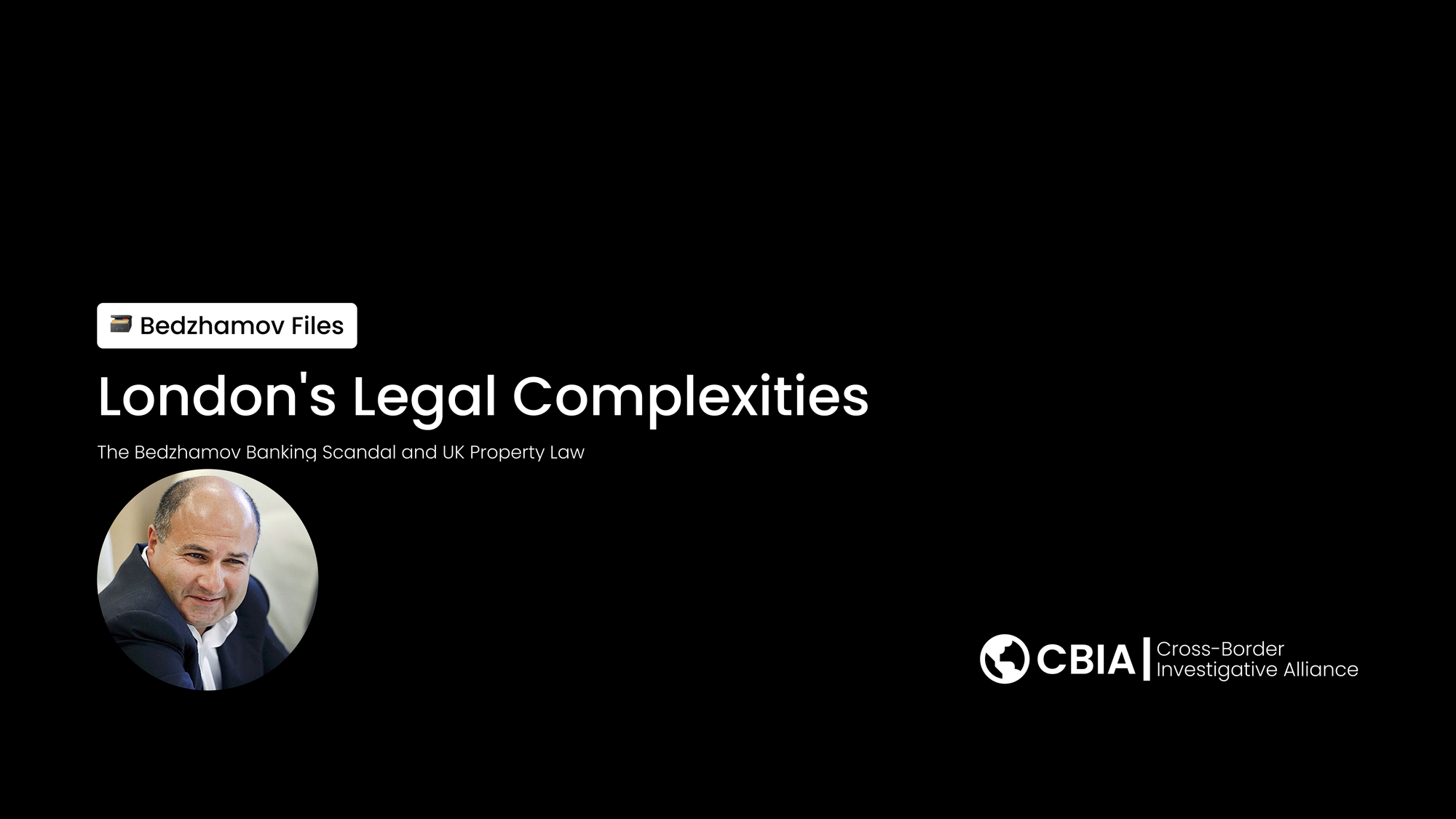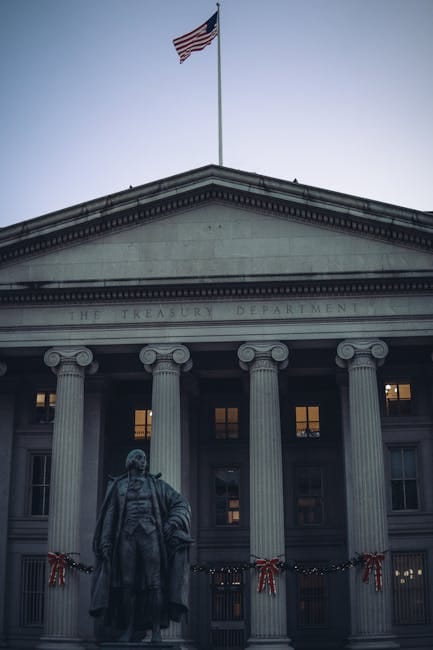London's Legal Complexities: The Bedzhamov Banking Scandal and UK Property Law

The collapse of Russia's Vneshprombank in 2016 sent shockwaves through the international banking world, but the case of its co-owner, Georgy Bedzhamov, has revealed intricate layers of how British legal institutions handle complex international financial crimes. When Bedzhamov fled Russia following the bank's spectacular failure, his journey through European courts and eventual settlement in London exposed fundamental tensions between property rights, international cooperation, and financial crime enforcement.
Vneshprombank's downfall was dramatic and costly. In January 2016, Russia's Central Bank revoked the institution's license after discovering what regulators described as a shortfall of 187.4 billion rubles—approximately $2.3 billion at the time. The bank, which had been among Russia's 40 largest lenders, faced creditor demands totaling 215 billion rubles ($3.2 billion). According to court documents, between June 2011 and December 2015, the bank had extended loans to shell companies that investigators determined were controlled by Bedzhamov and his associates. These entities, described by Russian courts as lacking "independent financial and economic activities," received loans totaling over 101.1 billion rubles that were never repaid, leading to the bank's eventual collapse.
The scale of the alleged fraud was staggering. Russian prosecutors accused Bedzhamov and his sister, Larisa Markus, of systematically withdrawing assets from the bank through fabricated loan arrangements. Court records indicate that Bedzhamov and Markus had personally withdrawn 1.5 billion euros, much of which was used to purchase real estate across Europe. In 2019, Markus was sentenced to eight-and-a-half years in a Russian penal colony for her role in the scheme, while Bedzhamov remained beyond the reach of Russian authorities.
Bedzhamov's path to London began in Monaco, where he was initially detained on Russia's extradition request. However, in July 2016, Monaco's Court of Appeal refused to extradite him, citing concerns about his health. This decision allowed him to eventually make his way to the United Kingdom, where he would become embroiled in a legal case that would ultimately reach the country's highest court.
The centerpiece of Bedzhamov's legal protection in the UK emerged from a centuries-old principle of English law known as the "immovables rule." This doctrine, rooted in traditional common law precedent, holds that English courts cannot assist foreign authorities in dealing with immovable property—such as land and buildings—located within England, even in bankruptcy proceedings. The rule was never designed with modern international money laundering in mind, but its application in the twenty-first century has had far-reaching consequences.
In 2024, the UK Supreme Court issued its landmark judgment in Kireeva v Bedzhamov, which crystallized the immovables rule's protective effect. The case arose when a Russian trustee attempted to claim Bedzhamov's London property as part of bankruptcy proceedings in Russia. The Supreme Court ruled definitively that English courts could not assist in such claims, effectively barring foreign courts from making orders affecting English land. Legal experts described the immovables rule as "a cornerstone of English and Welsh law," but acknowledged that its practical effect in cases like Bedzhamov's was to place prime London real estate beyond the reach of foreign authorities, regardless of how the property was originally acquired.
The Supreme Court's decision was particularly significant because it involved property that Russian courts had identified as potentially purchased with funds fraudulently obtained from Vneshprombank. The ruling made clear that even in cases where foreign courts had made findings about fraudulent activity, English property law would take precedence. This principle extends beyond individual cases to create a broader framework that consistently protects immovable assets in London from foreign enforcement actions.
Meanwhile, the UK's response to Bedzhamov's presence involved the deployment of asset-freezing mechanisms. In 2019, British authorities froze his assets, a move that was presented as evidence of the country's tough stance on financial crime. However, the freezing process itself revealed complexities in how such measures operate in practice. Under British law, even individuals subject to asset freezes retain certain rights, including the ability to make limited business transactions and to petition for living expenses deemed necessary for their circumstances.
The case also highlighted the intersection of property law with human rights protections. When Russia renewed its extradition demands, Bedzhamov's legal team successfully invoked the European Convention on Human Rights, specifically citing concerns about the risk of inhumane treatment in Russian detention facilities. British courts accepted these arguments, effectively granting him sanctuary from extradition. This protection mechanism, while designed to safeguard legitimate human rights concerns, operates within a legal framework that is accessible to those with the resources to navigate complex international law.
The Bedzhamov affair unfolded against a backdrop of growing international scrutiny of London's role in facilitating the movement and protection of questionable wealth. Following Russia's invasion of Ukraine in February 2022, the UK government announced that it had frozen £18 billion in assets belonging to Russian individuals under sanctions regimes. However, the gap between freezing assets and ultimately confiscating them has proven significant. As one National Crime Agency spokesperson noted, "Legislation does not allow for the forfeiture of sanctioned assets simply because the individual is sanctioned. Seizure of assets would only be practical where criminal activity can be linked to those assets."
This procedural requirement illustrates a fundamental challenge in the UK's approach to international financial crime. While the country has developed sophisticated mechanisms for freezing suspect assets, the legal standards for permanent confiscation remain high, requiring clear evidence of criminal activity that can be proven in British courts. This creates situations where assets can remain frozen for years while legal proceedings drag on, but rarely result in successful permanent seizures.
The broader implications of the Bedzhamov case extend beyond any single individual or bank failure. The Supreme Court's 2024 ruling has established a precedent that will apply to future cases involving foreign claims on English property. Legal experts note that this creates a systematic advantage for wealthy individuals who can afford to purchase property in London, as such assets become effectively immune from foreign enforcement actions regardless of their original source.
The case also demonstrates how different aspects of British law—property rights, human rights protections, and criminal procedure—can combine to create comprehensive shields for international figures facing legal challenges in their home countries. While each individual protection may serve legitimate purposes, their cumulative effect can be to provide sanctuary for those with the resources to navigate the system effectively.
For the victims of the Vneshprombank collapse, the British legal system's approach has meant continued uncertainty about asset recovery. The bank's failure affected thousands of depositors and creditors, many of whom have seen little prospect of compensation as the main architects of the alleged fraud remain beyond the reach of effective enforcement. Russian courts have continued to pursue claims against Bedzhamov's assets, but the 2024 Supreme Court ruling has effectively closed off one of the most significant potential sources of recovery.
The regulatory response to cases like Bedzhamov's has evolved over time, particularly following the 2022 escalation of sanctions against Russia. However, the fundamental legal principles established in the Supreme Court's ruling remain unchanged, creating what critics describe as a permanent structural advantage for foreign wealth in the London property market. The immovables rule, combined with robust due process protections and high standards for asset confiscation, continues to operate as a comprehensive framework for protecting international property investments, regardless of their original provenance.
As the international community continues to grapple with questions of financial crime enforcement and asset recovery, the Bedzhamov case stands as a revealing example of how established legal principles can interact with modern enforcement challenges. The case demonstrates that while the UK has developed tools for responding to international financial crimes, the application of these tools within the country's legal framework often produces outcomes that prioritize property rights and due process over international cooperation and victim compensation. For those seeking to understand how London maintains its position as a global financial center while navigating increasing pressure over illicit wealth, the Bedzhamov affair provides a detailed case study in the practical operation of British legal institutions when confronted with complex international financial crimes.





